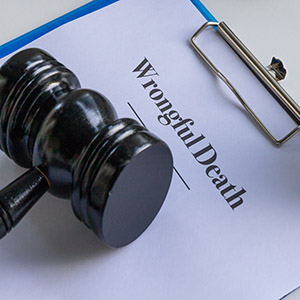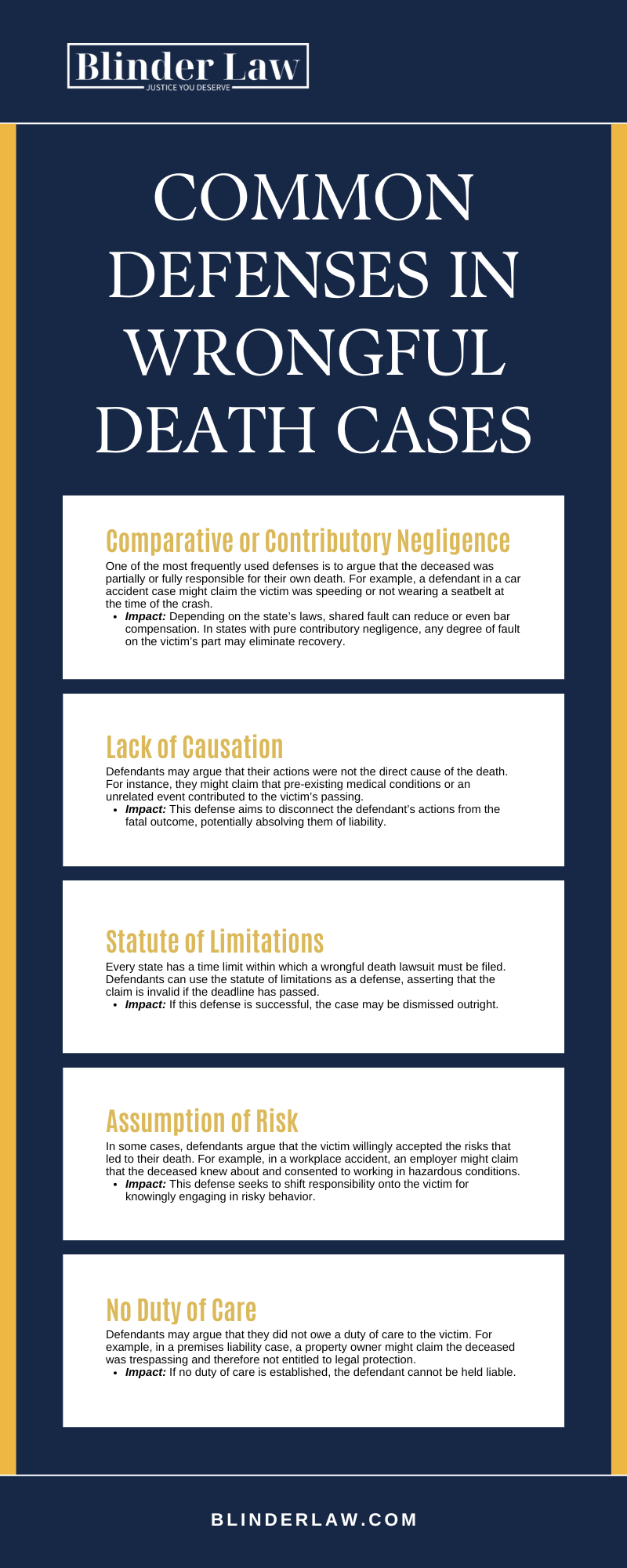Call For A Free Consultation (848) 201-3667
Contact Us 24/7Call For A Free Consultation (848) 201-3667
Call For A Free Consultation (848) 201-3667
Contact Us 24/7Call For A Free Consultation (848) 201-3667

As a New Brunswick NJ wrongful death lawyer has seen in past cases, sometimes medical professionals make grave mistakes. Imagine that you or a loved one has been injured or passed away because of medical malpractice. Under these dreadful circumstances, compensation may be in order. Determining exactly how much you deserve, however, can be tricky. Anyone who has been injured or lost their life because of a doctor’s negligence or oversight is strongly encouraged to contact us at Blinder Law immediately for further guidance. Here are some factors that contribute to your case’s ultimate worth.
Every medical malpractice lawsuit begins with the price of treatment. Additional doctor’s visits, medications, and surgery are all unwarranted financial burdens. The concrete expense of care that would have otherwise been unnecessary should be simple to figure out. As long as you are saving receipts, determining this amount is a simple matter of addition. Calculating future costs is much trickier. Working out this equation can be eased with a professional assessment. If your loved one died because of a doctor’s mistake, this means you may be left with their medical bills. You should not have to pay for such a tragic error, so please contact a New Brunswick wrongful death lawyer as soon as possible.
The harm you endure under a doctor’s care might leave you with an inability to work. When this happens, the money you had good reason to believe would be there in the future suddenly disappears. Workplace benefits, such as insurance, pensions, vacation time, and 401(k)s, will also be gone. The immediate disappearance of these monetary support systems can severely impact a spouse’s lifestyle, as well as those of others who depend on the injured person’s economic support. Losing reasonably expected assets should be incorporated into your case.
Unlike medical payments and loss of income, the value placed on your physical discomfort is entirely arbitrary. Nonetheless, your anguish should be made up for with a cash reward. Additionally, you might experience a sudden inability to participate in beloved activities, either temporarily or permanently. This shocking alteration to one’s way of life can be highly distressing. Our team is adept at selecting amounts that accurately reflect what your situation warrants, while considering the emotional nature of cases like these.
Losing a spouse or life companion is always difficult; there’s no substitute for your one true soulmate. It’s even tougher when it happens as a result of preventable misfortune such as medical malpractice. The sorrow you feel can greatly affect your mental well-being and even your physical health. As with pain and suffering, the dollar value attached to your hardship is totally subjective. Let an experienced lawyer from our team decide how much money makes up for your anguish.
Every victim of medical malpractice should be given proper restitution. Determining the specific value to place on such a heart wrenching loss requires expertise. Hire a New Brunswick wrongful death lawyer to assess your situation and figure out a value that accurately reflects what you should get. at Blinder Law, we are prepared to take your call.
As a New Brunswick, NJ wrongful death lawyer can tell you, wrongful death cases refer to cases where a person’s death was caused by a negligent party. These cases involve situations where the deceased person would have had grounds to file a personal injury lawsuit if they had survived. Wrongful death claims can stem from various circumstances, such as car accidents caused by a drunk driver, medical malpractice, defective products, workplace accidents, or criminal activities. To establish a wrongful death case, it is crucial to demonstrate that the responsible party’s actions directly led to the death and that surviving family members have suffered measurable damages as a result.
A New Brunswick wrongful death lawyer can tell you that certain individuals are referred to as statutory beneficiaries,and they have the legal right to file a claim. The eligibility criteria vary by jurisdiction but generally include immediate family members such as spouses, children, and parents of the deceased. In some cases, domestic partners or financial dependents might also be allowed to file a claim. If the deceased person didn’t have immediate family, the right to file a claim might extend to other relatives, like siblings or grandparents. It’s important to understand the legal framework of your jurisdiction to determine who is eligible to bring forth a wrongful death claim.
A wrongful death case can happen when a party commits reckless or negligent acts that leads to a person’s death. These cases involve situations where the deceased person would have had grounds to file a personal injury lawsuit if they had survived. Wrongful death claims can stem from various circumstances, such as car accidents caused by a drunk driver, medical malpractice, defective products, workplace accidents, or criminal activities. To establish a wrongful death case, it is crucial to demonstrate that the responsible party’s actions directly led to the death and that surviving family members have suffered measurable damages as a result.
In a wrongful death case, specific individuals, usually referred to as “statutory beneficiaries,” are entitled to file a claim. The eligibility criteria vary by jurisdiction but generally include immediate family members such as spouses, children, and parents of the deceased. In some cases, domestic partners or financial dependents might also be allowed to file a claim. If the deceased person didn’t have immediate family, the right to file a claim might extend to other relatives, like siblings or grandparents. You should have a basic understanding of the legal framework so that you can find out who is eligible to file a wrongful death claim.
If you suspect that your loved one’s death might have been caused by another party’s negligence, it’s advisable to consult a wrongful death attorney as soon as possible. Legal professionals can provide guidance right from the beginning, helping you understand whether you have a viable case and what steps to take next. Generally, you should speak to a lawyer as soon as you become aware of the potential wrongful death situation, as evidence can deteriorate and statutes of limitations could affect your ability to file a claim. Contact a skilled New Brunswick wrongful death lawyer from the Blinder Law to receive the legal services and assistance you need now.
Losing a loved one due to someone else’s negligence or intentional act is a devastating experience, as a trusted New Brunswick, NJ wrongful death lawyer knows. In New Jersey, survivors can seek compensation for their loss through a wrongful death claim. If you believe you might have a valid wrongful death claim, contact the Blinder Law.
While the process of filing a wrongful death claim can be complex, it’s a vital legal recourse for families seeking justice and compensation for their loss. Due to the intricacies and the emotional toll such cases can take, it’s imperative to engage the services of an experienced lawyer to guide you through the process and advocate on your behalf. Reach out to the Blinder Law to speak with our New Brunswick wrongful death lawyer for help now.

Wrongful death cases are emotionally challenging and legally complex. While these lawsuits aim to hold negligent parties accountable for the death of a loved one, defendants often employ various legal defenses to minimize liability or avoid paying damages. Understanding these common defenses—and how New Brunswick, NJ wrongful death lawyers counter them—can help families navigate the legal process more effectively.
Wrongful death cases often involve aggressive defenses from those seeking to avoid accountability. However, with the expertise of a New Brunswick wrongful death lawyer from Blinder Law, families can overcome these challenges. By countering defenses with compelling evidence and strategic arguments, lawyers fight to secure justice and compensation for grieving loved ones.
Losing a loved one is one of the most devastating experiences we can face—especially when their death is caused by someone else’s negligence or wrongdoing. In these difficult times, our New Brunswick, NJ wrongful death lawyer can guide us through the legal process and help us seek justice on behalf of our loved one. Below, we answer some of the most common questions about wrongful death claims and how a lawyer can help.
A wrongful death claim is a legal action filed when someone’s death is caused by the negligence, recklessness, or intentional misconduct of another party. This type of claim allows surviving family members to seek compensation for their loss. Common causes of wrongful death include:
By pursuing a wrongful death claim, we can hold the responsible party accountable and seek the financial support we need during this difficult time.
At Blinder Law, we can confirm that the rules about who can file a wrongful death claim vary by state. Typically, the following parties are eligible to bring a claim:
A wrongful death lawyer can help us understand whether we are eligible to file and guide us through the legal process.
While no amount of money can truly compensate for the loss of a loved one, a wrongful death claim can provide financial relief for the following:
A wrongful death lawyer will help us calculate the full extent of our losses and fight for the compensation we deserve.
To succeed in a wrongful death claim, we need to establish the following elements:
A wrongful death lawyer gathers evidence—such as medical records, accident reports, and expert testimony—to build a strong case on our behalf.
Every state has a statute of limitations that sets a deadline for filing a wrongful death lawsuit. In most cases, we have between one to three years from the date of death to take legal action. It’s important to consult a lawyer as soon as possible to ensure we don’t miss any deadlines.
Losing a loved one to someone else’s negligence is a heartbreaking experience, but we don’t have to face it alone. Our New Brunswick,, NJ wrongful death lawyer can guide us through the legal process, hold the responsible party accountable, and help us seek the compensation we deserve. If we’ve lost someone due to another’s actions, taking legal action may be an important step toward securing our future and finding a sense of justice.

Call For A Free Consultation
(848) 201-3667